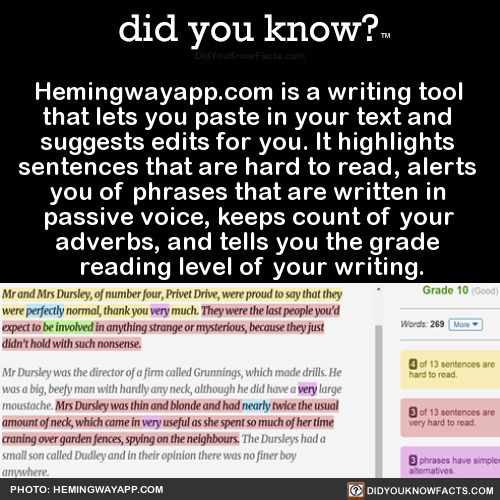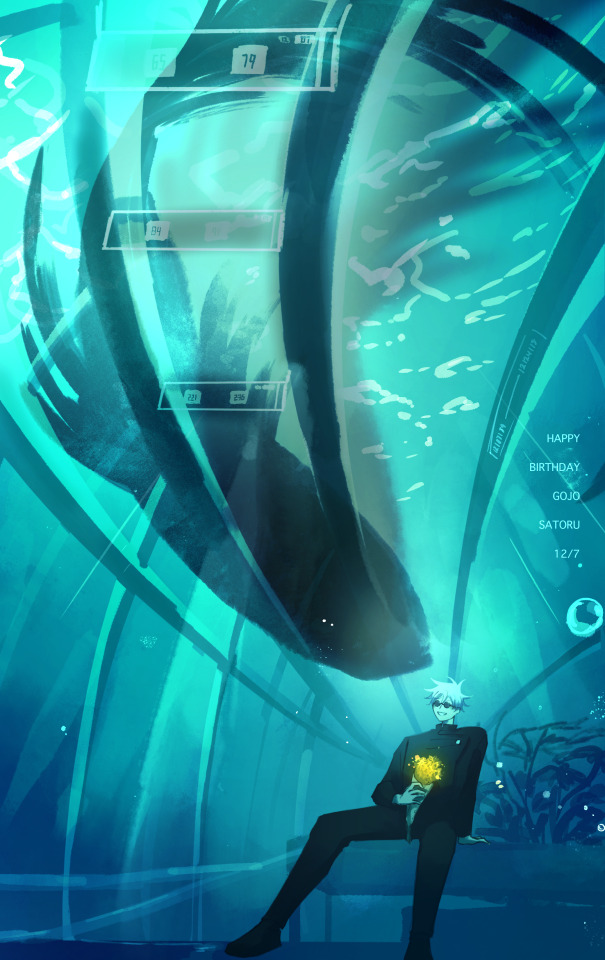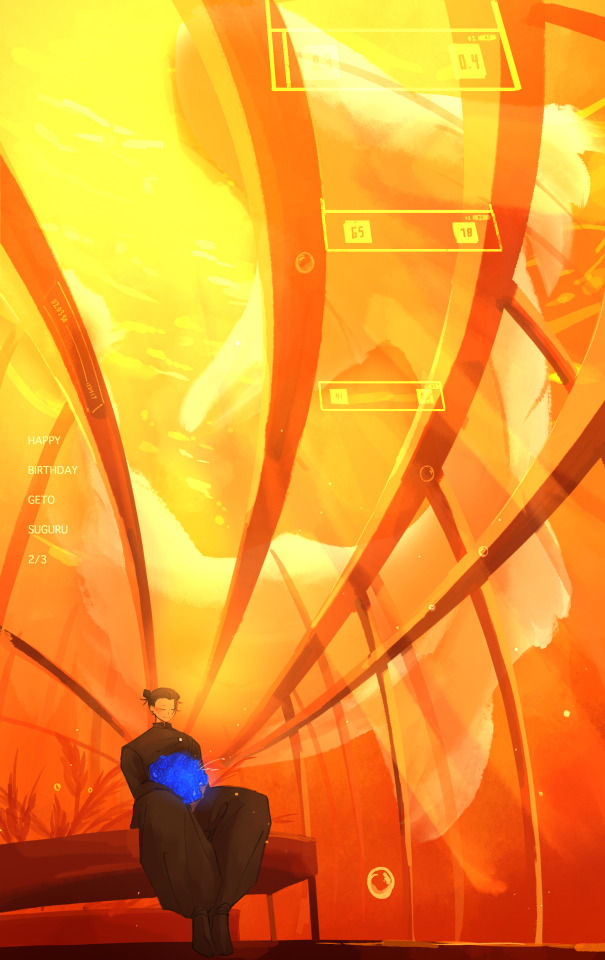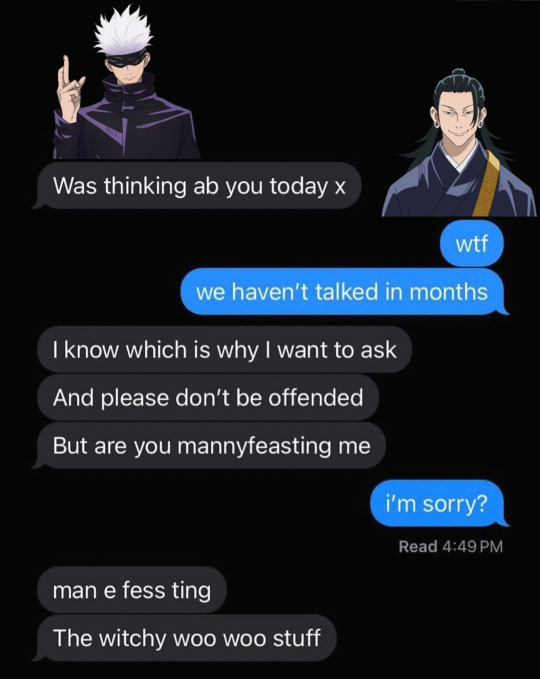Text
So, there's a dirty little secret in indie publishing a lot of people won't tell you, and if you aren't aware of it, self-publishing feels even scarier than it actually is.
There's a subset of self-published indie authors who write a ludicrous number of books a year, we're talking double digit releases of full novels, and these folks make a lot of money telling you how you can do the same thing. A lot of them feature in breathless puff pieces about how "competitive" self-publishing is as an industry now.
A lot of these authors aren't being completely honest with you, though. They'll give you secrets for time management and plotting and outlining and marketing and what have you. But the way they're able to write, edit, and publish 10+ books a year, by and large, is that they're hiring ghostwriters.
They're using upwork or fiverr to find people to outline, draft, edit, and market their books. Most of them, presumably, do write some of their own stuff! But many "prolific" indie writers are absolutely using ghostwriters to speed up their process, get higher Amazon best-seller ratings, and, bluntly, make more money faster.
When you see some godawful puff piece floating around about how some indie writer is thinking about having to start using AI to "stay competitive in self-publishing", the part the journalist isn't telling you is that the 'indie writer' in question is planning to use AI instead of paying some guy on Upwork to do the drafting.
If you are writing your books the old fashioned way and are trying to build a readerbase who cares about your work, you don't need to use AI to 'stay competitive', because you're not competing with these people. You're playing an entirely different game.
4K notes
·
View notes
Text
context is important. Reasoning for both irrational and rational decisions.... so irrational reasoning and rational reasoning also helps.
So I’ve been thinking about rational vs. irrational character decisions.
An irrational decision is great when your story is driven by your character’s personal flaws and struggles, and for crafting situations where your audience knows that these decisions are unavoidable because they are perfectly in character. Having your characters be perfectly able to solve their problems if they weren’t, y’know, themselves, is so very hard-hitting, and can be a fantastic part of a narrative.
The downfall with irrational decisions is that it can make situations seem less dire or make your antagonists seem less dangerous. If your characters are falling over themselves and their own personal issues, then it’s hard to show how the external problems in your story pose a serious threat, because you can’t demonstrate how they’re hard to deal with if your characters aren’t making solidly competent attempts in the first place.
Rational decisions are great for stories where most of your problems are external, like your characters trying to build a spaceship or infiltrate the bad guy’s lair. It’s also key to any horror writing, where you need your characters to be competent in order for your danger to be credible; if your audience spends the entire time wondering why your protagonists aren’t doing very obvious things to solve their problems, it’ll be a lot harder to get a properly spooky atmosphere going. But if your characters are only ever making the most optimal, logical choices without ever struggling, they won’t be very compelling, so just like with irrational decision-making, there’s a time and a place for this.
Ideally, you want some combination of both rational and irrational character choices. And maybe even more importantly, whatever choice a character’s making needs to be one that makes sense for them given everything you’ve already shown in the narrative so far. If the decision feels forced or contrived, then it doesn’t matter if it’s rational or not, because it’s not a choice that fits with the rest of the story.
But, yeah, ultimately, both types of character decisions are useful tools, and it’s less about one or the other being right, and more about both of these tools being useful for different types of situations.
826 notes
·
View notes
Text
WRITING TIPS🗣️
by bunny
hello and welcome to my soup. my letter soup. someone asked a very long time ago if i had any writing advice, and i said no, because writing is very in my head for me, but having thought about it there are some tips over the years that have changed the way i write! so
no. 1
youve probably seen this before. its what i call in my head the 70% rule -
- characters should never communicate more than 70% of what they feel to those around them.
70% is an absolute max, too. most of the time, characters interacting with each other should only articulate 50-60% of what they mean. think of your own life and how much you can struggle to say what you want, or say what you need. you can’t say it perfectly, right? it might be due to the strength of what theyre feeling, difficulty being honest, where they are. the likelihood of ever being to perfectly articulate yourself is low. utilise that, it makes conversations so much more fun to read!
no2
adding onto this, unreliable narrator should always, always (imo) play somewhat of a role in a narrative voice, unless omniscient third person is being used. i used to write a lot of first person pov, and now i prefer third person (growing up🤝🏻) but in third person a narrative voice can and still should be just as strong as in first person - tall ask, but its possible.
we are seeing the world through this character’s eyes: act like it. even if another character is a mess, if your pov character wouldnt notice it, the pov is going to be affected by that. they dont know what others are thinking or feeling. theyre guessing. and those guesses are going to be informed by their own experiences or perceptions of those around them, along with the world in general.
no3
show not tell. this kiiind of links back to no2 bc its sort of related to narrative voice. trust your readers to pick up on implications and read between the lines. every single interaction / scene has purpose - and it doesnt have to be clear!! i promise that even if readers dont get the purpose, they’ll pick up on the vibes🫵🏻
no4
you do not have to solve every plot hole or character flaw to show development. in fact id encourage you NOT to, especially if ur work is <30k.
i <3 toxicity and rancid vibes, so im a bit biased on this one. its definitely sort of an acquired taste. 😕✌🏻 but in short one shots (anything under 40/50k, id consider short, lol) fixing everything is unnecessary!! you can leave things unfinished! it makes everyone feel incredibly human and raw!!
no5
relating to no4 slightly, tension.
never never never show your full hand. theres always something left to be revealed! whether its about the world itself, another character, or someone’s motivations, it needs to be kept secret. riiiight until the end
(this is more for longform writing)
finally
world - your characters have to be casual about where they are, with little exception. the BEST aus ive read are where the characters feel casual about the crazy things happening bc this is THEIR normal, and its taken for granted so much but it really makes or breaks a work.
slang or language, reactions to stuff that we as readers might be alarmed by but they arent - think a burn in a hospitality au or injuries in sports aus - they might not be as big a deal to the characters since this is their normal.
exceptions include charas thrown into ur world brand new / really big events - essentially you pick and choose where the biggest reactions are to events for plot🫶🏻

i feel silly typing this. anyways enjoy
41 notes
·
View notes
Text
Weird Brain Hacks That Help Me Write
I'm a consistently inconsistent writer/aspiring novelist, member of the burnt-out-gifted-kid-to-adult-ADHD-diagnosis-pipeline, recently unemployed overachiever, and person who's sick of hearing the conventional neurotypical advice to dealing with writer's block (i.e. "write every single day," or "there's no such thing as writer's block- if you're struggling to write, just write" Like F*CK THAT. Thank you, Brenda, why don't you go and tell someone with diabetes to just start producing more insulin?)
I've yet to get to a point in my life where I'm able to consistently write at the pace I want to, but I've come a long way from where I was a few years ago. In the past five years I've written two drafts of a 130,000 word fantasy novel (currently working on the third) and I'm about 50,000 words in on the sequel. I've hit a bit of a snag recently, but now that I've suddenly got a lot of time on my hands, I'm hoping to revamp things and return to the basics that have gotten me to this point and I thought I might share.
1) My first draft stays between me and God
I find that I and a lot of other writers unfortunately have gotten it into our heads that first drafts are supposed to resemble the finished product and that revisions are only for fixing minor mistakes. Therefore, if our first draft sucks that must mean we suck as writers and having to rewrite things from scratch means that means our first draft is a failure.
I'm here to say that is one of the most detrimental mentalities you can have as a writer.
Ever try drawing a circle? You know how when you try to free-hand draw a perfect circle in one go, it never turns out right? Whereas if you scribble, say, ten circles on top of one another really quickly and then erase the messy lines until it looks like you drew a circle with a singular line, it ends up looking pretty decent?
Yeah. That's what the drafting process is.
Your first draft is supposed to suck. I don't care who you are, but you're never going to write a perfect first draft, especially if you're inexperienced. The purpose of the first draft is to lay down a semi-workable foundation. A really loose, messy sketch if you will. Get it all down on paper, even if it turns out to be the most cliche, cringe-inducing writing you've ever done. You can work out those kinks in the later drafts. The hardest part of the first draft is the most crucial part: getting started. Don't stress yourself out and make it even harder than it already is.
If that means making a promise to yourself that no one other than you will ever read your first draft unless it's over your cold, dead body, so be it.
2) Tell perfectionism to screw off by writing with a pen
I used to exclusively write with pencil until I realized I was spending more time erasing instead of writing.
Writing with a pen keeps me from editing while I right. Like, sometimes I'll have to cross something out or make notes in the margins, but unlike erasing and rewriting, this leaves the page looking like a disaster zone and that's a good thing.
If my writing looks like a complete mess on paper, that helps me move past the perfectionist paralysis and just focus on getting words down on the page. Somehow seeing a page full of chicken scratch makes me less worried about making my writing all perfect and pretty- and that helps me get on with my main goal of fleshing out ideas and getting words on a page.
3) It's okay to leave things blank when you can't think of the right word
My writing, especially my first draft, is often filled with ___ and .... and (insert name here) and red text that reads like stage directions because I can't think of what is supposed to go there or the correct way to write it.
I found it helps to treat my writing like I do multiple choice tests. Can't think of the right answer? Just skip it. Circle it, come back to it later, but don't let one tricky question stall you to the point where you run out of brain power or run out of time to answer the other questions.
If I'm on a role, I'm not gonna waste it by trying to remember that exact word that I need or figure out the right transition into the next scene or paragraph. I'm just going to leave it blank, mark to myself that I'll need to fix the problem later, and move on.
Trust me. This helps me sooooo much with staying on a roll.
4) Write Out of Order
This may not be for everyone, but it works wonders for me.
Sure, the story your writing may need to progress chronologically, but does that mean you need to write it chronologically? No. It just needs to be written.
I generally don't do this as much for editing, but for writing, so long as you're making progress, it doesn't matter if it's in the right order. Can't think of how to structure Chapter 2, but you have a pretty good idea of how your story's going to end? Write the ending then. You'll have to go back and write Chapter 2 eventually, but if you're feeling more motivated to write a completely different part of the book, who's to say you can't do that?
When I'm working on a project, I start off with a single document that I title "Scrap for (Project Title)" and then just write whatever comes to mind, in whatever order. Once I've gotten enough to work with, then I start outlining my plot and predicting how many chapters I'm going to need. Then, I create separate google docs for each individual chapter and work on them in whatever order I feel like, often leaving several partially complete as I jump from one to the other. Then, as each one gets finished, I copy and paste the chapter into the full manuscript document. This means that the official "draft" could have Chapters 1 and 9, but completely be missing Chapters 2-8, and that's fine. It's not like anyone will ever know once I finish it.
Sorry for the absurdly long post. Hopes this helps someone. Maybe I'll share more tricks in the future.
3K notes
·
View notes
Text
All I'm saying is, if a fic refers to characters by their physical attributes instead of their names or pronouns ("he smiled at the older" "the blonde laughed") when we know who the character is, and ESPECIALLY if the descriptions include "ravenette" or "cyanette" or other ridiculous words--
I'm clicking out of that fic so fast my AO3 history won't even register I've been there.
35K notes
·
View notes
Text
I am a(n):
⚪ Male
⚪ Female
🔘 Writer
Looking for
⚪ Boyfriend
⚪ Girlfriend
🔘 An incredibly specific word that I can't remember
408K notes
·
View notes
Photo

Hemingwayapp.com is a writing tool that lets you paste in your text and suggests edits for you.
It highlights sentences that are hard to read, alerts you of phrases that are written in passive voice, keeps count of your adverbs, and tells you the grade reading level of your writing.
(Source)
6K notes
·
View notes
Text
If any of y’all didn’t know, there’s a free online library, aka
https://openlibrary.org/
and I found like, twelve ebooks I’ve been wanting to read on there, and blasted through like three of them during the course of a boring-ass shift.
113K notes
·
View notes
Text
Dear Writeblr:
I would love to still make The Writeblr Rag (my newspaper about writeblr)... it's solidified there will be a website for it now... and I'll rely on YOU ALL much heavier to give me the info needed to run the paper.
That said... if you have any interest in your writing being featured (or want to be a reader for the paper), please reblog this and give me the following info:
The name(s) of your WIP(s); how many WIP(s) you wish to have featured on the site and their names; what genres you write; age restrictions/trigger warnings for your writing if any; your writeblr (if not reblogged to said writeblr); what site you post your writing to, preferably with links to your site(s).
In the following format:
Writeblr url:
WIP Name(s):
WIP Genres:
Number of WIPs:
Age Restrictions for your writing/blog:
Trigger warnings for your writing/blog (if any, please put N/A if none so I know you didn't just skip this without reading it):
Links to the sites you post to:
Link
Link
Link
Link
Link
Thank you to anyone and everyone who reblogs.
If you just want to be a reader, feel free to tag with "reader tag" or something indicating you want to read so I know what you're reblogging for.
If you're not reblogging for either, but just wish to boost my project (thank you so much!), just tag "boost" or something similar.
Thank you!
22 notes
·
View notes
Text
Update on: The Writeblr Rag
Many of you have heard that I was planning a writeblr newspaper. I have decided to go through with continuing this project. I feel with this AI bs and so much of writeblr deciding to leave tumblr (me included), it's more important than ever to have a place where people can keep others up to date and others can keep updated on each others' writing. So, I just wanted to make a post announcing I will still be making a website for it and posting links to my blog @thewriteblrrag. I have to go, my uber's here but I'll give more info soon!
15 notes
·
View notes
Text
something I've found really helpful for writing is leaving a few notes at the end of the doc where I'm writing about what happens next.
just a little "#TODO: Oliver and Mat go clothes shopping, Theo notices them, gets jealous" kind of thing
because whenever I'm writing ideas start popping into my head that I can't flesh out in the moment, but when I'm trying to get back into a story that I haven't worked on a for a few days (which happens a lot, sadly), it's just. Head Empty.
I'm basically a pantser at this point and barely plan, but this. Really. Helps.
19 notes
·
View notes
Note
Hi hi hi! In your intro you said you were working on prose in your third draft, and I loveee learning about prose and prose styles. Can I ask about your process/tips/random interesting prose things? Thanks! <3
hi!!! thanks for the ask<33
A few things I have discovered work well for me when writing prose (this is just general stylistic stuff, not specific to narrative voice because that is a whole other conversation haha):
Sometimes a short, even a clichéed, action beat packs more punch in a fast-paced moment (ex. "his eyes narrowed). Vivid, original details aren't always better.
On the other hand, sometimes vivid, original details can enrich a slower moment. If the prose feels dull in a scene it is probably because action beats like "his eyes narrowed" need to be fleshed out more. (ex. "he watched me through the slits of his eyes").
My best descriptive writing comes from forcing myself to flesh out stuff, and when I think it has been flesh out enough I force myself to push it further. (ex. "through the knife-edged gap beneath his eyelids his brown eyes tracked me across the room.")
When describing an action done by another character, show how the POV character reacts. (ex. "he watched me through the slits of his eyes and the lie died on my lips.")
When choosing what actions/facial expression/body language to describe, pick things that aren't obvious. If I have to describe something obvious anyway I don't use vivid language. It will just sound like purple prose.
Less is more. Particularly with dialogue and action tags.
I try not to over-rely on em-dashes, -ing verbs, adjectives, or the "as" dialogue tag structure (ex. "she said as she yawned.") Any time I find myself writing one of these I force myself to rephrase it.
Word order, comma placement, conjunctions make a huge difference for flow. (ex. "wind sang through the mountains with a whistle that chilled the bones" versus "through the mountains the wind sang, a whistle shrill and strong, and a chill shook my bones.")
There are definitely more but that's what I have got for now. Some of this I learned while researching writing advice but a lot of it is just stuff I have decided works for me - even the stuff I technically learned through writing advice first didn't really stick with me until I came to the realization on my own that I was already gravitating toward it.
17 notes
·
View notes
Text
how to go from daydream to draft:
begin by daydreaming as you normally do, or just after you've finished doing so. write down every thought you have. one after another. do not reread. do not stop for spelling mistakes. just dump out every thought. this is called stream of consciousness writing. you can do this for every scene you need a first draft for.
struggling to draft the scene? try to daydream about it. start thinking about how it would look, feel, what the characters would say, act it out in your head and then write out the stream of your thoughts as they arrive.
by now you have a few scene dumps. you may be tempted to go back and edit. do not do this expect for obvious spelling mistakes. do not read closely and start thinking "i need to rework this sentence." that is for later. now you're in the zone. draft more scenes. or work out what the next scene needs to be, scaffold it with a few comments. this will be the inspiration for your next deliberate thought stream that you will write out. repeat this process until you have the whole draft.
now that you have a draft or part of a draft you get to do this very fun thing called revise until you're happy. sweep through your draft with specific goals each time. one sweep to fix spelling/grammar. another for character voice. another for plot. repeat until you're happy with it.
leave it alone. just leave it for a bit. at least a few hours or days or even weeks. forget it exists. this will allow you come back with fresh eyes. then you can do your revisions with an eagle eye. now you may realize you need to add/remove scenes. you know how to get the first version down. close your eyes and daydream at your desk if that's what takes!
remember that fiction writing is persuasive writing. you are trying to persuade the reader to care about what happens next, the character's, the world, the feelings. as you're revising, consider whether you are persuaded. is the feeling/thoughts you wanted to provoke being felt by you when you read it? when working with beta readers, be sure to communicate what you're trying to convey so they can tell you if you've been successful or not.
this got a bit beyond getting the first draft done. hope you found it helpful.
bonus tip: check the spellings of names and places and other nouns that are not typically used, like the name of a magic tool!
4K notes
·
View notes
Text
Writing a novel when you imagine all you stories in film format is hard because there’s really no written equivalent of “lens flare” or “slow motion montage backed by Gregorian choir”
162K notes
·
View notes
Text
Why Your Plot Twists Should be Predictable
I’m a huge fan of the mystery genre, and of any story that makes my heart jump at unexpected twists and turns. There are few reading moments quite like the thrill of a shocking turn of events. Your heart speeds up, your eyes widen just a touch, and your fingers grip the book a little more tightly. There’s just something about it.
As writers, we naturally want to provide these same “I can’t believe it’s happening!” moments to our future readers as well. There’s an undeniable and challenging art to the plot twist, make no mistake, but there’s also an irresistible call to them.
So how do we manage it?
I think the urge to get a plot twist on the page can be so great that we’re tempted to blast the reader with the most unexpected moments in exactly the place that they occur to us. This doesn’t sound so bad, but consider this: The quality of a plot twist does not lie solely in its shock value. You can make the most surprising revelation in history, but your twist could still seem hollow. My favorite solution to this problem, from the perspective of both a reader and a writer, is to make your plot twists predictable.
Isn’t that the opposite of the intended effect? Aren’t plot twists in essence, meant to be unpredictable?
I would answer, no - they’re meant to be unpredicted. The most satisfying plot twists or revelations that I have ever seen have always, always been those that I could have figured out myself, if only I had noticed what was important. All the pieces of the puzzle were there, trailed along as the plot progressed, but I simply didn’t realize that the answer or a future event lay with them.
In contrast, many plot twists are simply thrown at you out of the blue. I still genuinely enjoy many of these in the moment, saying “how surprising!/dramatic!/tragic!”, but when the surprise fades, I’m often left wishing the magic hadn’t happened behind a curtain. The motivations or evidence of a betrayal completely unseen, not just unnoticed, or the discovery of a key bit of information by a detective occurring off-screen. These are less satisfying because there’s no feeling of “of course!” or “how did I not see this happening!” or “I knew it!” (even if you didn’t).
I was recently reading a popular YA series that did this between book one and book two. In the first, the protagonist’s romantic relationship was essentially the hinge around which the entire plot swung, and as I read, I became increasingly invested in it, as I was intended to. I believed in it. I was convinced of it. And because it was constantly and consistently portrayed as a strong, healthy relationship built on true, meant-to-be love, that’s what I considered it to be. Then the second book begins, and a large portion of the plot depends on the sudden realization that this relationship was not and never had been meant to be. It was, in fact, poisonous. The love interest’s character took a sharp turn into unstable and unlikable territory (quite different from what it had been in the first book), and it was said that he had always been this person. This twist served to move the story into very entertaining places and usher in an admittedly far better romance, but it still nagged at me as very unfair. I felt like I’d had the rug pulled out from under me - and not in the fun, satisfying way. There had been no signs along the way that indicated things would move in this direction, no subtle slide or glimpses at this character’s other side. Nothing made me say, “Of course this happened - I’ve been so blind!” Instead, all I got was the “what??” feeling.
It in no way ruined the book or the series, but it did stand out as one of its weakest points by far. I wanted to see some warning signs that I would have only recognized as such in retrospect. And if it had been hinted at and somehow I had predicted it? It still would have been an enjoyable twist. Because a plot twist being predicted does not mean it is ruined.
It’s a little like Chekov’s gun. Don’t be scared to foreshadow the surprises in your story because a few clever readers might piece it together ahead of time.
Some twists are inevitably exempt from this idea, of course, like accidents, natural disasters, or sudden illness. Some things really are unpredictable. And sometimes an out-of-the-blue surprise is the best thing for a story. But when you have the opportunity to feed your readers seemingly innocuous bits of information that would lead them toward predicting an upcoming twist if only they knew to suspect it? Think about giving it a chance - it could be immensely fulfilling.
And as always, take all writing advice with a pinch of salt and make it work for your story, not the other way around. I hope this can be a useful strategy to add to your tool belt! Happy writing, everybody.
622 notes
·
View notes


